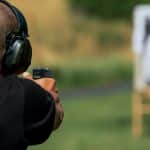The atmosphere around policing is turbulent. It is filled with doubt, resentment, anger, and a lack of taking the profession seriously. I’m not addressing police leaders who fight for their departments and those under their command. I am addressing the public, who have a right to know the reality of what politicians, interest groups, and others have created. I don’t care whether you lean left or right. Both sides have had a role to play. I have close friends who run good police training companies. These companies, like mine, truly test a police officer’s ability to think on their feet when split-second decisions count. How many years is it going to take to make police officers well-trained? Is policing considered a profession or “just a job?”
Let’s talk about other professions for a minute. I’m going to pick two of them. These two, I believe, impact the public as much as policing does. The two professions are physician and pilot. Now, within each of the professions, some specialties require more training and education. Becoming a physician is typically a 10-year process for general practice. To become a pilot is about a 2-to-4-year process. The training doesn’t end there. Individuals in any of these professions must always train to keep their skills up and current. The training is intensive and requires a lot of reading and exams. Each profession has a governing body that maintains the standards of the profession. They also revoke licenses should a professional be found negligent. The governing body for physicians is comprised of other doctors. It’s the same with pilots.
In policing, there are Peace Officers Standards and Training (POST) and civilian review boards. POST mostly comprises civilians appointed by governors of their respective states. Few, if any of the appointees are police officers. Civilian review boards are just that, made up of civilians. Now, a question always asked is, if physicians judge other doctors, why don’t cops judge other police officers?

I was at a training one day when a POST appointee came to sit in on the training to observe. The POST appointee watched a Use of Force video with us. This training comprised seasoned police officers. Most were SWAT officers, Defensive Tactics Instructors, Use of Force Instructors, and other high-level demanding jobs. We all understood the tactics used during this use of force incident of a violent felon. The POST appointee did not understand the tactics, and we had to explain them. Later that day, the POST appointee addressed the class, and a question was asked on what made this individual qualified for their position at POST. The answer we received was less than comforting, and we realized that this individual had no experience at all in law enforcement. Yet this is one of the appointees who must develop the training standards and judge police officers daily.
Another example: I attended a meeting regarding questions to ask during background investigations during the hiring process. One of the questions that POST wanted to have on the hiring process was about social media. The question asked if the applicant posted anything that may have been perceived as offensive in the last 10 years. Now, think about this for a minute. A typical police recruit is about 24 years old. So now the POST Commission wants to judge an individual who “may” have posted something offensive or perceived to be offensive on their social media page when they were 14?
I have been a cop for over 15 years and have worked in different units at my police department. I am currently a patrol sergeant. Over the years, most training courses I have attended are check-the-box training that does not address the skills needed for the job. Sure, there are 8-hour to 80-hour courses on various subjects such as criminal law, criminal procedure, interview and interrogation techniques, crime analysis, homicide investigations, narcotic investigations, CQB, active shooter, SWAT school, etc. Most of the police training is just sprinkling knowledge here and there. There always needs to be more time to continue the training or education in a particular field of law enforcement. Most of it has to do with the lack of numbers in the ranks, but also, it’s the way police training has been developed and executed poorly.
Let’s go over some statistics. Without numbers, all my words are just that, words. A study was conducted by Dr. Christopher Donner and Nicole Popovich titled “Hitting (or missing) the mark: An examination of police shooting accuracy in officer-involved shooting incidents.” 134 Officer-involved shooting cases were studied, and where researchers could establish the calculated hit rate, “incredibly,” at merely 35%.
In other words, more than six out of 10 rounds fired were misses. These numbers should be a concern to the public. Now, why is this the case, one would ask? I believe it’s the teaching method. Spending just one week at the range during the academy is not enough time to give cadets the confidence they need to feel proficient with their firearms. There are police officers that I know who have no clue how to take their firearms apart and clean them. The other issue is not reinforcing the lessons after the academy and further training. Most police departments in the United States qualify their officers at the range once or twice a year.

Here is another study titled “The real risks during deadly police shootouts: Accuracy of the naive shooter,” conducted by Dr. William J Lewinski, Ron Avery and Jennifer Dysterheft, Nathan D Dicks and Jacob Bushey in 2015. This study found that individuals who completed a standard law enforcement academy firearms training were not more accurate in their shooting than those who had not had any law enforcement handgun training. Those civilian shooters had a hit accuracy of 75% on distances from 3 to 15 feet.
In a national survey by the Dallas Police Department (1992), hit rates were recorded as low as 25% in some locations. A study examining officer-involved shootings found that as the distance between suspects and officers increased beyond 3 ft, non-injuries shooting (to the suspect) increased from 9% to over 45% (in the 4-20 ft range) (White, 2006). So what does this tell you? Officers need a lot more training. Not just a check-the-box qualification. Proficiency needs to be tested. Officers shoot at a static (not moving) target and with hardly any stress involved. This does not truly measure a police officer’s resilience to stress or decision-making under stress.
These are just two studies. The reality is there are few studies that revolve around police training or quality police training. Why is that? A phrase one of my close friends told me, which got me to think some more. He said: “Leaders/politicians do not want exposure to liability.” In other words, they know there is a problem but do not want to address it. Addressing it means there is a problem, and admitting it, they will lose “votes.” How can we continue like this? The public, who pays taxes, wants to feel safe. How can they feel safe if the very people who swore to protect them are not trained well enough?
Most well-trained cops pay out of pocket to get quality training. Those training classes cost anywhere between $500 to $2000. These officers are investing in themselves more than their agencies. Now, the blame does not solely lie on the agencies. Once again, it’s because of the budgets they are given.
This problem with poorly trained police officers needs to be addressed by the public. Some politicians vilify police to get their “votes.” Some politicians make inflammatory statements against police. Some call for the defunding of police. These are all just rhetoric that does not help any community. Cities that have “decriminalized” minor offenses such as shoplifting have opened a can of worms.

Look at what’s happening in major cities with rampant looting. Criminal Justice reform is not just about policing. It should address the entire judicial system. Starting with the courtrooms to the street cop. There should be real training and vetting of qualified candidates for the job of a Police Officer. This must be treated as a profession, not as “just a job.”
The training should be as rigorous as a physician, pilot, or any other profession requiring high standards.
______________________________
Ayman Kafel is the founder and owner of Hybrid Wolf Blue Line Strategies, LLC. A veteran-owned training and consulting company for Law Enforcement officers and agencies. He combines his military and law enforcement experience to bring much-needed cutting-edge training to the law enforcement profession.
Ayman is not only an active police officer but also a law enforcement instructor and has taught across the East Coast of the United States. He offers a wide variety of training, such as advanced patrol tactics, mechanical breaching courses, designated marksman, and Human Performance under duress.
In addition, Ayman is an Army Combat Veteran who was deployed during Operation Iraqi Freedom in 2005. He became a police officer in 2007 after 8 years of service in the Army
Ayman has seen the ugliness of war and evil in the world. He survived two civil wars prior to immigrating to the United States in the late eighties.
His current position is the commander of his department’s Problem-Oriented Policing Unit. He leads a team of investigators that employs unconventional methods and Special Forces philosophy in achieving specific objectives in the communities he serves. These unconventional methods range from winning hearts and minds to specific strategic law enforcement actions to arrest and prosecute those who are the root cause of various crimes.
To reach Ayman, feel free to email him at hwbluelinestrategies@gmail.com
As the Voice of the Veteran Community, The Havok Journal seeks to publish a variety of perspectives on a number of sensitive subjects. Unless specifically noted otherwise, nothing we publish is an official point of view of The Havok Journal or any part of the U.S. government.
Buy Me A Coffee
The Havok Journal seeks to serve as a voice of the Veteran and First Responder communities through a focus on current affairs and articles of interest to the public in general, and the veteran community in particular. We strive to offer timely, current, and informative content, with the occasional piece focused on entertainment. We are continually expanding and striving to improve the readers’ experience.
© 2024 The Havok Journal
The Havok Journal welcomes re-posting of our original content as long as it is done in compliance with our Terms of Use.



